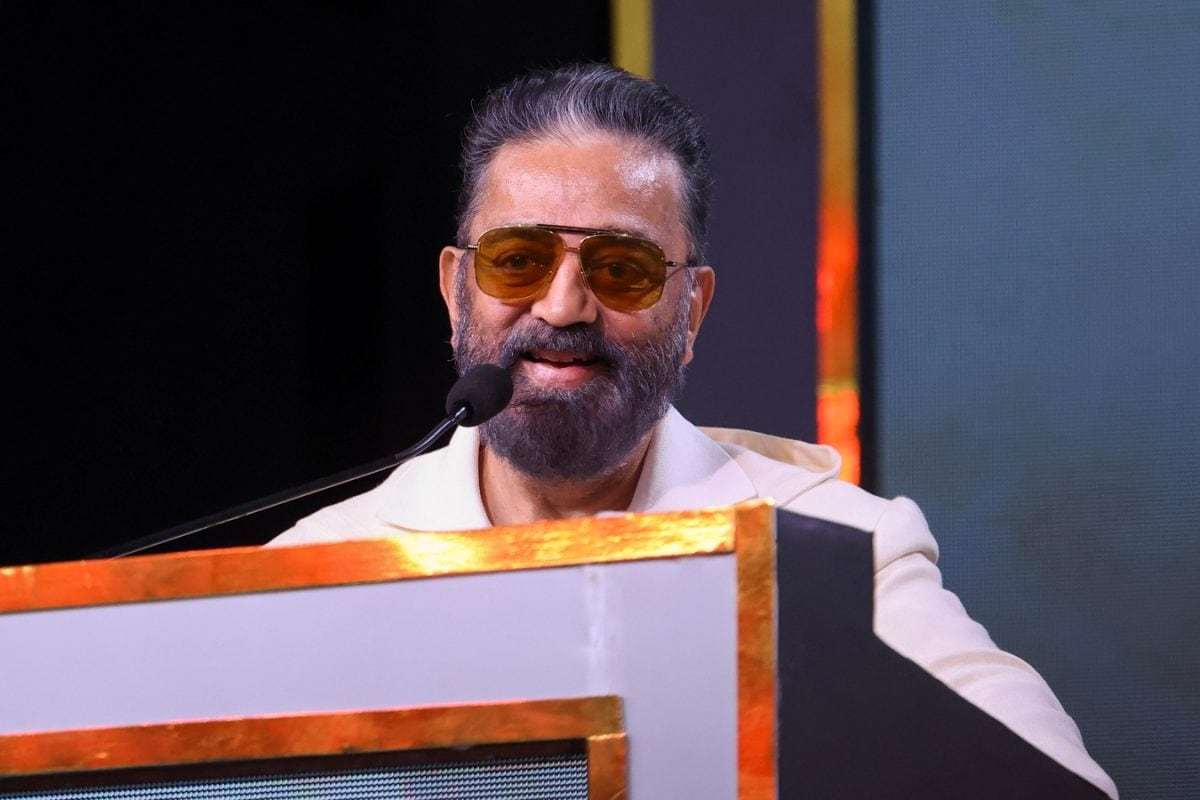

Kamal Haasan is standing firm on his recent remarks about the Kannada language, which have ignited a controversy across Karnataka. The actor and politician, known for his outspoken nature, has stated that he will not apologize for his comments, maintaining that they were made "out of love."
The controversy stems from an event in Chennai where Haasan, during the audio launch of his upcoming film "Thug Life," claimed that "Kannada was born out of Tamil." This statement, intended to highlight the shared linguistic heritage of South India and to welcome Kannada actor Shivarajkumar, who was present at the event, was met with swift and strong condemnation from various groups in Karnataka.
Haasan began his speech with the phrase "Uyire Urave Tamizhe," which translates to "my life and my family is Tamil language." Addressing Shivarajkumar, he said, “This is my family in that place. That's why he (Shivarajkumar) has come here. That's why I began my speech saying life, relationship and Tamil. Your language (Kannada) was born out of Tamil, so you too are included (part of it).”
The backlash was immediate. Pro-Kannada organizations and political leaders, particularly from the BJP, accused Haasan of disrespecting the Kannada language and hurting the sentiments of Kannadigas (Kannada-speaking people). The Karnataka Rakshana Vedike, a prominent pro-Kannada group, went so far as to threaten to ban "Thug Life" if Haasan did not issue a public apology.
Karnataka BJP President B.Y. Vijayendra led the charge, demanding an unconditional apology and accusing Haasan of "disrespecting" Kannada to glorify his mother tongue. Vijayendra emphasized that Kannada has a rich history spanning centuries and is spoken in many parts of the world. He stated that Haasan, who has acted in numerous Indian languages, including Kannada, should respect every language.
The controversy has also drawn in other political figures. Karnataka Chief Minister Siddaramaiah took a veiled dig at Haasan, stating that Kannada has a long-standing history and that Haasan was "unaware of it."
Despite the widespread criticism and calls for an apology, Kamal Haasan has remained steadfast. He has not directly addressed the demand for an apology but has subtly defended his remarks by emphasizing his love and respect for both Tamil and Kannada languages. Sources suggest that Haasan believes his comments were misinterpreted and that his intention was to highlight the historical connections between the two languages, not to belittle Kannada.
The situation remains tense, with pro-Kannada groups continuing to voice their displeasure and threatening further action if Haasan does not retract his statement. The incident has also sparked a broader debate about language politics and linguistic pride in South India, where such issues are deeply sensitive.
Haasan's film, "Thug Life," is slated for release in the coming weeks, and it remains to be seen whether the controversy will impact its reception in Karnataka. Some activists have already torn down posters of the movie in Bengaluru, signaling their continued anger.
The unfolding events highlight the complexities of regional identities and linguistic pride in India, where language often serves as a powerful marker of cultural identity and political affiliation. Kamal Haasan's refusal to apologize underscores his conviction in his views, setting the stage for a potentially protracted standoff.